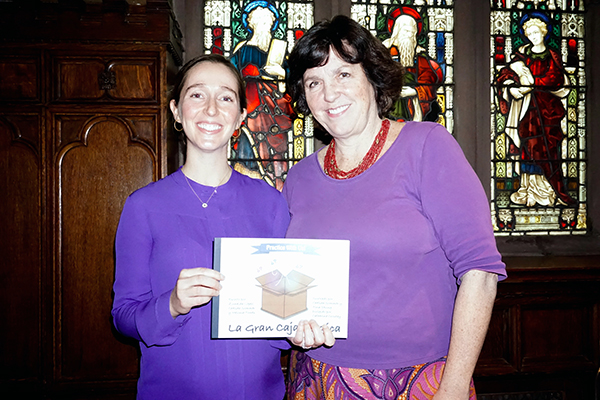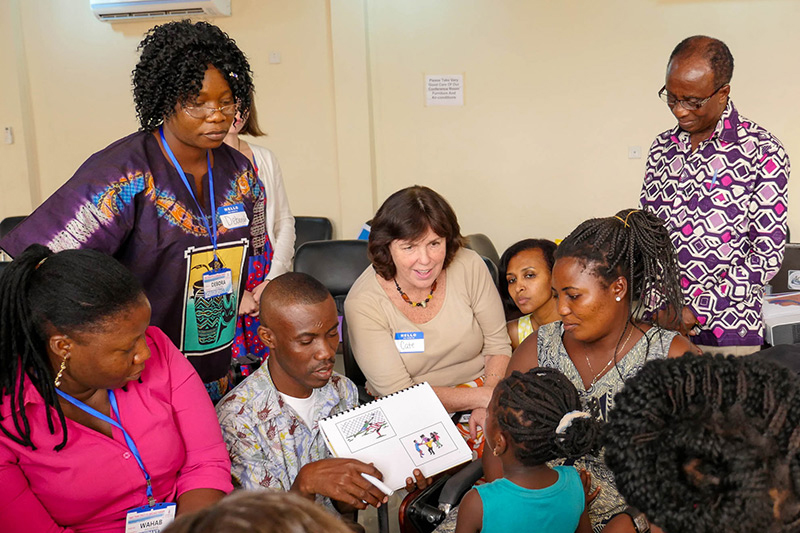One in 700 babies worldwide is born with cleft lip and/or palate, an opening in the roof of the mouth and/or lip that occurs during fetal development. In wealthier nations, the condition is routinely corrected by surgery when children are between the ages of seven and 14 months. But in countries where treatment is far less available, children with clefts often go untreated.
Smile Train, a nonprofit organization founded in 1999, funds cleft surgeries for children in the developing world who would otherwise lack access to treatment. Without surgical intervention, children with clefts may face a lifetime of eating and dental problems, ear infections and hearing loss, and, perhaps most crippling of all, impaired, and often unintelligible, speech – all of which can contribute to significant health challenges and social ostracism.
In addition to providing cleft repair surgery, Smile Train has identified the need to grow its comprehensive post-surgical follow-up programs. One such program is Smile Train’s speech therapy program, which focuses on correcting the “deeply ingrained speech patterns” that develop prior to cleft surgery, Pamela Sheeran, Vice President of Comprehensive Cleft Care with the New York-headquartered Smile Train, told students in Teachers College’s Program in Communication Sciences & Disorders in late October.
“We saw that TC was doing such amazing classwork in effectively training the next generation of speech-language pathologists on cleft palate therapy and thought, ‘We should come together."
Pamela Sheeran, Vice President of Comprehensive Cleft Care, Smile Train
In 2013, Smile Train found a partner in TC’s Catherine “Cate” Crowley, Professor of Practice in the program and head of its Bilingual Extension Institute, which for the past 22 years has prepared bilingual speech-language pathologists with the specialized knowledge and clinical skills needed to provide culturally and linguistically appropriate services to children and adolescents.
“We saw that TC was doing such amazing classwork in effectively training the next generation of speech-language pathologists on cleft palate therapy and thought, ‘We should come together,’” said Sheeran of the collaboration, which has been funded by Smile Train, TC’s Provost’s Office, and the Wyncote Foundation.
Since 2006, Crowley has been leading TC Speech-Language students on annual trips to Guatemala, Ethiopia, Colombia, Ecuador, India and especially Ghana, a country roughly the size of Oregon where, as recently as 2008, there was exactly one certified speech therapist for a population of some 26 million people. In 2012, the National Council of Ghanaian Associations, Inc. (NCOGA) presented its Humanitarian Award to Crowley, TC adjunct faculty member Miriam Baigorri, TC President Susan Fuhrman, and TC Provost Tom James for “dedicated and devoted services to the disabled children and higher institutions in Ghana.”

Pamela Sheeran (left), Vice President of Comprehensive Cleft Care, Smile Train and Catherine Crowley (right), Professor of Practice, Director of TC's Bilingual Extension program
With the support of Smile Train, TC also has created an online tutorial program that provides language therapists domestically and abroad with foundational training in rebuilding the speech of young people emerging from cleft palate surgery. The program is aimed at clinicians educated in programs that don’t offer specific training in cleft palate therapy. The vast majority of programs fall into that category.
“There are speech therapists in the developing world who know how to do speech therapy in general,” Crowley said. “They do not have the specific skill set needed for cleft palate speech therapy.” To meet the needs of children born with cleft palate, TC has also developed a “train the trainer” manual in Spanish and in English. Also supported by Smile Train, that manual offers resources and the curriculum for a 5-day institute that speech therapists with expertise in how to address post-surgical cleft palate speech patterns use to develop that expertise in other practitioners. With the help of Smile Train’s global partner network and grant programs, the training has already been offered in Colombia, Ecuador, Peru, Guatemala, the Philippines, Ethiopia, and Ghana. Smile Train, Crowley and TC work closely with local surgeons both here and abroad as part of the speech therapy they offer to determine whether a child needs an additional palate surgery and what kind of surgery would have the greatest impact on the child’s speech.
“Speech therapy is crucial for a child born with cleft palate to ensure that child experiences life to the fullest extent possible,” she said in remarks at the conclusion of the hour-long talk and discussion in Millbank Chapel. “So it’s not just teaching in the classroom. We have an obligation given not only who we are, but what we are, to take what we do here and create a much larger impact than just training people to get their degrees and run away. The people getting their degrees here are making a difference all around the world.”
— Catherine Crowley, Professor of Practice, Director of TC's Bilingual Extension Institute
Crowley and the College are credited as well with the creation of story books and interactive games that enlist parents, friends and loved ones in advancing the speech of children in remote villages without regular access to professional speech therapists. All these cleft palate resources and training materials are available for free at www.leadersproject.org and are widely used by Smile Train’s global network. This website, which receives up to 4,000 visits per week from educators, practitioners and families all over the world, is a TC-based project that connects clinical practice with law and research in order to provide culturally and linguistically appropriate services both for speech-language pathology services in the U.S. and abroad.
The collaboration with Smile Train has dramatically amplified the impact of all these efforts. Through its website and on-the-ground outreach, Smile Train has brought the TC materials and programs to many regions and countries in Latin America, Africa and Asia where Crowley and her colleagues and students had not been able to go.
For Crowley, achieving that kind of reach is the bottom line for TC’s program.
“Speech therapy is crucial for a child born with a cleft palate to ensure that child experiences life to the fullest extent possible,” she said in remarks at the conclusion of the hour-long talk and discussion in Millbank Chapel. “So, it’s not just teaching in the classroom. We have an obligation given not only who we are, but what we are, to take what we do here and create a much larger impact than just training people to get their degrees and run away. The people getting their degrees here are making a difference all around the world.”
Sheeran agreed. “Cate and TC are doers,” said Sheeran. “It’s a strategic partnership that has been extremely effective. We’ve run training sessions together that have had a tremendous impact on the lives of therapists, children and their families affected by clefts around the world. We hope our partnership and efforts are going to continue to grow in order to help more children born with cleft in need of speech therapy.”
